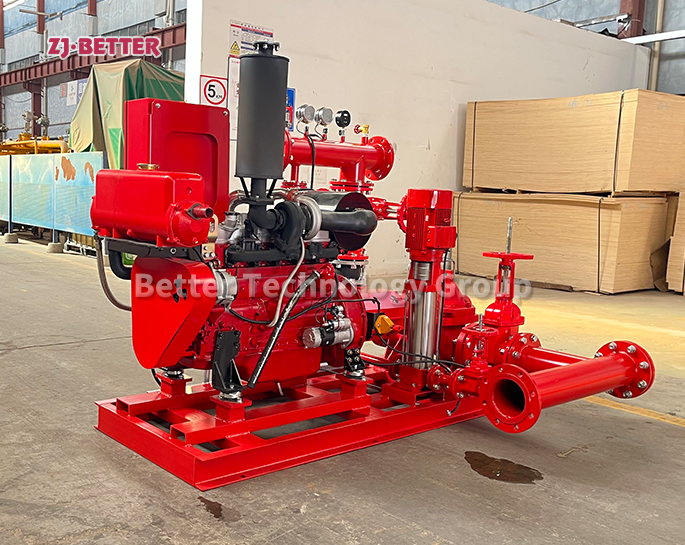Everything You Need to Know About Fire Pump Safety Features
When it comes to fire safety, ensuring that your fire pump is reliable and operates safely is paramount. Fire pumps are critical components in fire protection systems, supplying water or other fire-fighting agents to sprinkler systems, hydrants, and other emergency systems. Proper safety features are necessary to guarantee these pumps perform effectively during a fire emergency. In this article, we will explore the essential safety features of fire pumps and how they contribute to reliable and effective fire protection.

1. Automatic Shutoff Valve
One of the most vital safety features of fire pumps is the automatic shutoff valve. This valve ensures that the pump shuts down automatically if there is a malfunction or if the system detects any abnormal conditions, such as pressure fluctuations, overheating, or leaks. By preventing further damage or failure, the automatic shutoff valve helps to maintain the integrity of the fire protection system.
2. Pressure Control Systems
Fire pumps must maintain a consistent pressure to ensure that water is delivered at the required flow rate during a fire emergency. A pressure control system is an essential safety feature that automatically adjusts the pump’s output pressure to keep it within optimal levels. This ensures that the fire suppression system operates at peak efficiency when it's needed most, preventing underperformance during an emergency.
3. Fail-Safe Features
A fail-safe system is built into fire pumps to ensure continued operation even in the event of a malfunction. For example, if the primary power source fails, a diesel engine fire pump may switch to its backup power source (e.g., an electric generator) to continue providing water. This redundancy guarantees that the pump will keep running during a power outage or other critical failure scenarios.
4. Temperature Monitoring and Overheat Protection
Fire pumps are subjected to harsh conditions and must be able to function in extreme temperatures. Overheating can cause irreparable damage to the pump's components. Temperature monitoring systems and overheat protection features ensure the pump is running within safe temperature ranges. If the system detects excessive heat, it can trigger a warning or automatically shut the pump down to prevent damage.
5. Corrosion Resistance
The materials used in the construction of fire pumps must be resistant to corrosion, especially in areas where they may be exposed to harsh environmental conditions. Pumps with corrosion-resistant components reduce the risk of failure due to rust or deterioration, enhancing the reliability and longevity of the fire protection system.
6. Leak Detection Systems
Fire pumps are typically installed in high-stress environments where leaks can lead to serious issues. A leak detection system alerts users to any potential leaks or water loss within the fire pump system, enabling quick repairs or adjustments before a minor issue becomes a critical failure.
7. Regular Maintenance and Inspection
Even the most advanced fire pump systems require regular maintenance and inspection to ensure optimal performance. Built-in diagnostics, system alerts, and monitoring features allow operators to schedule and track maintenance and service, reducing the risk of malfunction and ensuring that the system remains in top condition.
Conclusion
Fire pump safety features are crucial to the reliability and effectiveness of fire protection systems. From automatic shutoff valves to pressure control and fail-safe systems, these safety mechanisms help protect property, lives, and the pump itself from failure. When investing in fire pumps, it's essential to choose models with these critical safety features and ensure that they are regularly maintained and inspected. This will provide peace of mind, knowing your fire protection system will be ready to perform when it matters most.
By understanding and implementing these safety features, you can ensure your fire pump system operates efficiently and safely, contributing to a robust and reliable fire safety infrastructure.

.png)
.png)

.png)


